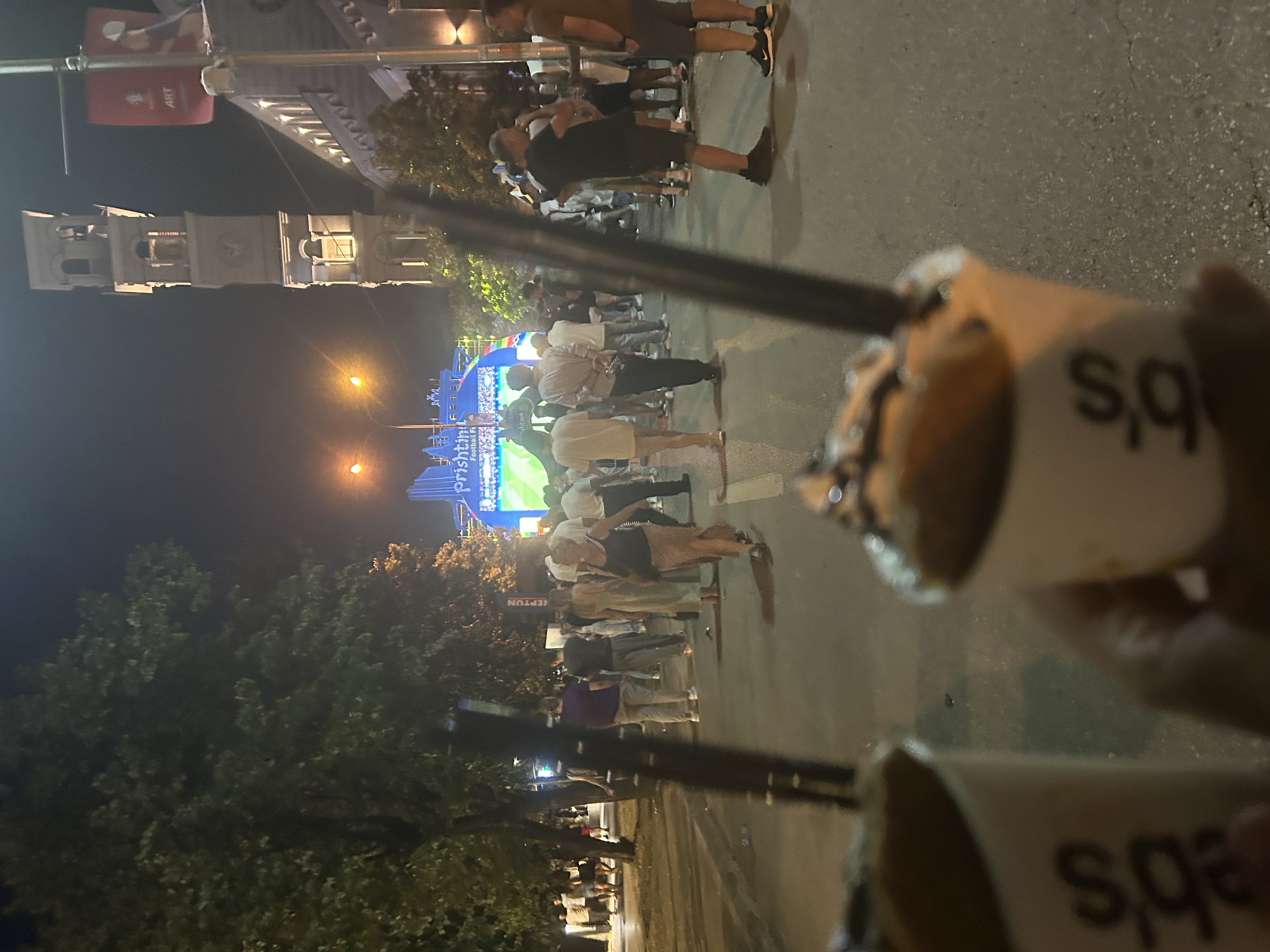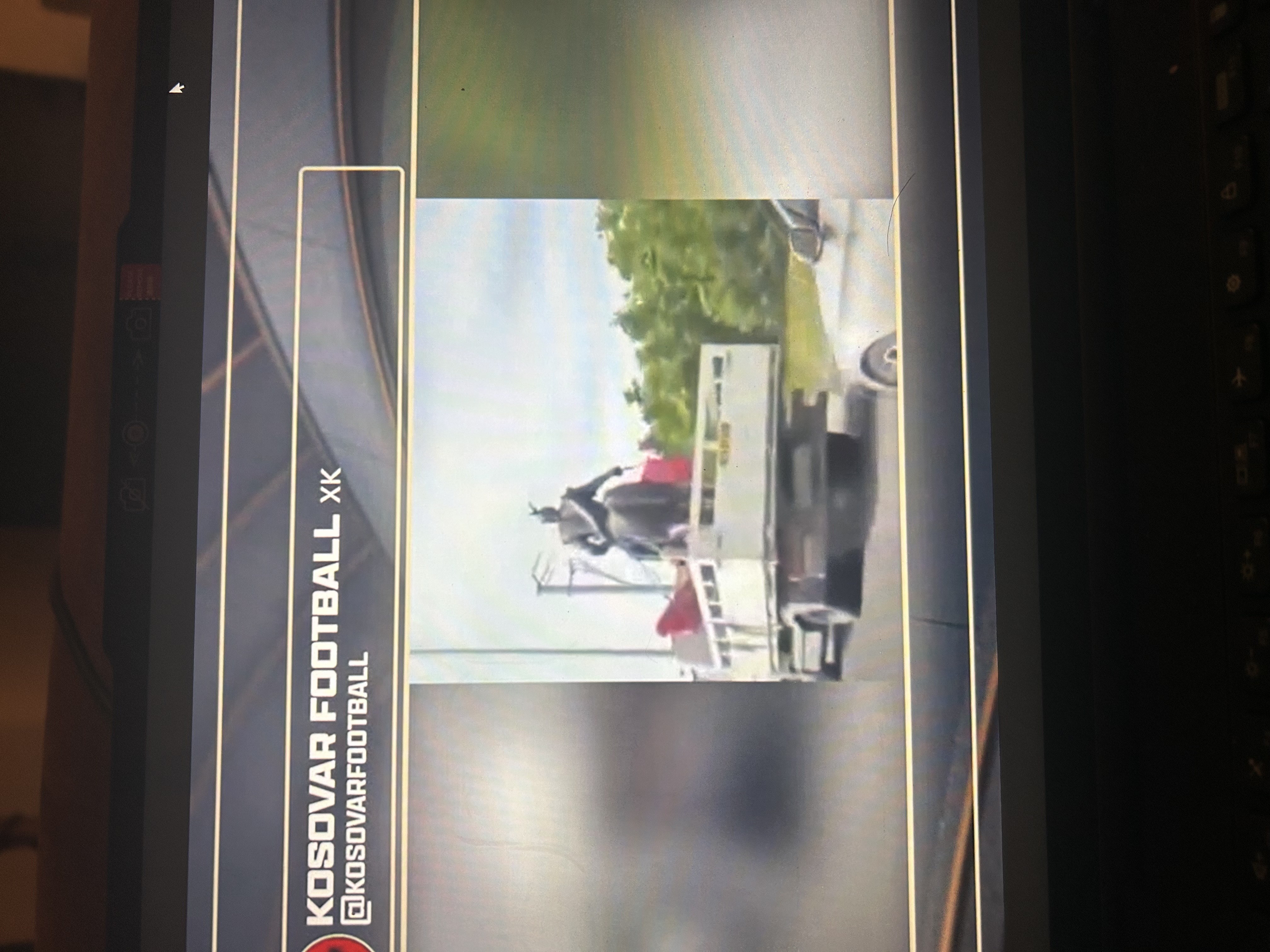Futboll ("Football/Soccer")
Anyone who knows me, knows I love soccer. I look forward every summer to CONCACAF, the World Cup, the Olympics, whichever big event is happening. This year, it’s the Euros and I am fortunate enough to be in Europe for the games! While I’m not directly celebrating in Berlin, Pristina is just as excited as I am. The city has set up a viewing party center directly in front of the Mother Teresa Cathedral, about two blocks from my apartment. I can hear the announcers and the crowd cheering whenever there’s a game playing. Katie and I went out a couple nights to check out the area: there’s a giant screen set up with every game playing, plenty of seating and food stands, and plenty of major brand placements for advertising. There’s security to enter the specific viewing area but its location on a major walking street means there’s plenty of space for those who do not wish to enter but want to watch the games. Pristina has a summer night culture of walking with family or friends, going to get ice cream in flavors like pistachio and blueberries, and usually some sporting event to draw a crowd. Every time I went out at night, families would fill the streets with toddlers on motorized toy cars, teenagers on scooters, and adults meeting friends for a late night snack.

Katie and I went out to a local English/Scottish pub to watch one of the Albanian games. The streets and surrounding bars were filled with Kosovars ready to cheer on Albania. During the playing of the opposition team’s national anthem, the bar played an Albanian fight song to drown it out and the whole crowd sang along (*immediate add to my Spotify playlist*).
Edited to add after the Euros ended: Now the Euros can have some touchy issues, this year, for the Balkans at least, Albania, Serbia, and Croatia qualified to compete. Albania ended with almost 25,000 euros in fines due to fans cheering death threats during the Albania-Croatia game (Croatian fans were also fined). Serbia was fined a considerable amount for their fans burning “Greater Albania” flags which show a unification of Albania with ethnically Albanian enclaves, and a Kosovar journalist was stripped of his press credentials for making the Greater Albania eagle with his hands to Serbian fans. Luckily, physical violence was kept to a minimal and most actual players were on their best behavior. The Kosovar national team did not play in this year's Euros but team members did drive down to the first Albanian game and they brought a statue of Skenderbeg with them!

At the Academy, judicial training begins in the fall but the organization works year-round to keep its trainings up-to-date and relevant for today’s issues. The first step in designing new programs is reading through the recommendations from the Kosovo Judicial Council. The Kosovo Judicial Council (KJC) is an independent institution responsible for ensuring the independence, impartiality, and professionalism of the judicial system. It was established in the Constitution to manage and oversee the judiciary in Kosovo, playing a crucial role in upholding the rule of law and ensuring that the judiciary functions effectively and without external influence. The Council is responsible for the recruitment, appointment, and promotion of judges, initiating disciplinary actions against judges who violate standards or ethics, dealing with the budgeting and resource allocations of courts, and organizing and overseeing the continuous professional development of judges.
Every year, the KJC releases a new report with recommendations for the entire court system including items for the Academy of Justice to prioritize. For 2023, the report recommended the Academy focus on trainings with new technologies. There is a new court administrative system being tested called Kosova. Judges and court staff will need trainings and practice on this new court management system to learn how to use it effectively. Zoom court meetings are not standard in Kosovo but the Academy may start training judges to utilize more remote technology to help rural areas receive better judicial services.
The KJC's work is vital for Kosovo's ongoing efforts to strengthen its legal institutions and align them with European and international standards, especially considering Kosovo's aspirations for European Union and Council of Europe integration.